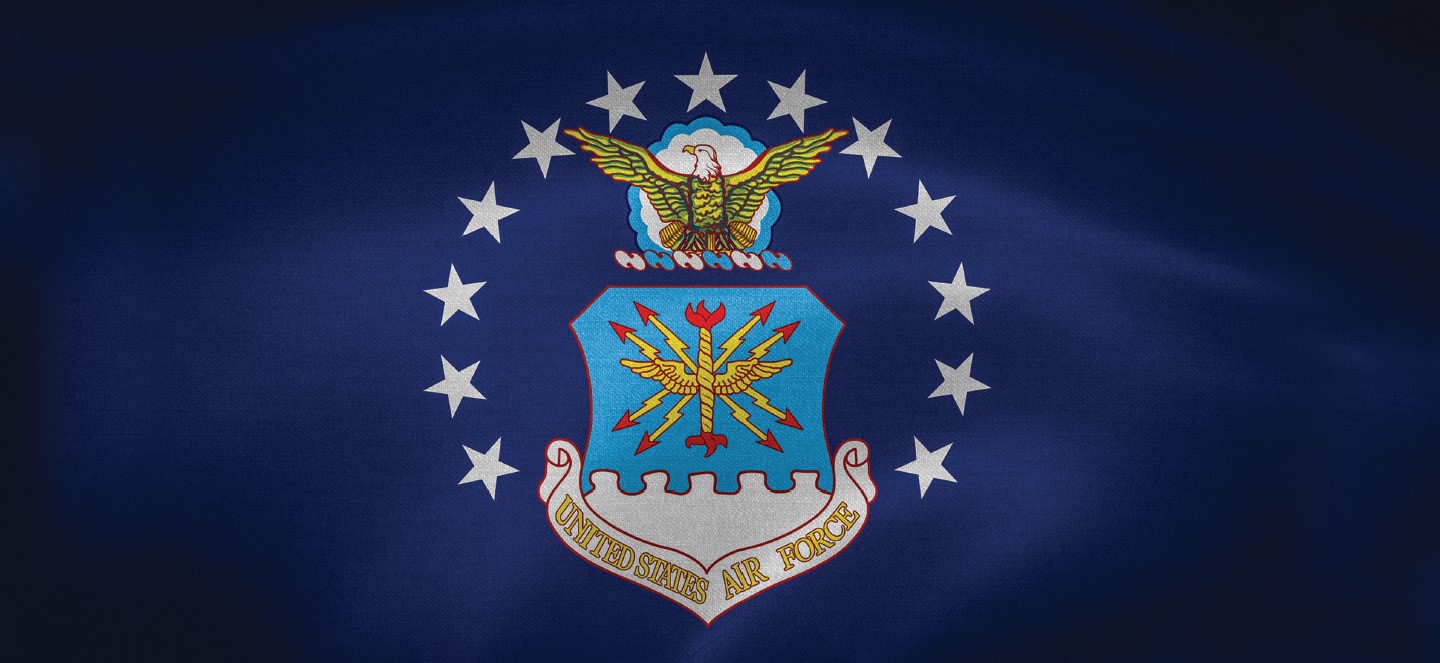
10 minute read
‘Go-To Global Health Resource’: Exploring the U.S. Air Force International Health Specialist Program

By Maj. Michael D. Santora, USAF, DMD, MPH, and Lt. Col. Benjamin J. Pass, DDS, MPH, MA
The U.S. Air Force International Health Specialist (IHS) Program, established in 2000 by former Air Force Surgeon General Lt. Gen. Paul K. Carlton Jr., plays a crucial role in extending the operational reach of the Joint Forces. These highly trained health professionals possess diverse international skills and knowledge in both military and civilian health disciplines, including dentistry. They serve as full-time advisers primarily within the Office of the Surgeon General at Combatant Commands and Air Components. The IHS Program has a clear mission: “To optimally shape conditions through health-related opportunities that align with the National Security Strategy, National Defense Strategy, and National Military Strategy as expressed in Combatant Command Campaign Plans throughout all phases of conflict.” Their vision is to be the Department of Defense’s go-to global health resource.
To achieve this mission, the IHS Program focuses on formalizing requirements and training for global health engagement. Participants professionalize roles at the strategic, operational and tactical levels, emphasizing activities such as assessment, monitoring and evaluation. By doing so, they drive sustainable, long-term global health engagement efforts and enhance the return on investment for these activities.
IHS teams collaborate closely with allied and partner nation counterparts to identify mutual medical capability and capacity-building goals. Subsequently, they develop global health engagement activities and programs aligned with the geographic Combatant Command Campaign Plan.
Over 300 Air Force medics with IHS training are stationed at military treatment facilities worldwide, ready to respond to global health engagement assignments, humanitarian assistance operations and major disasters.
Air Force Dentists in IHS Billets
The Air Force Dental Corps has two full-time IHS positions. Lt. Col. Benjamin Pass serves as an IHS embedded within the Command Surgeon’s Office at Air Combat Command, located at Joint Base Langley-Eustis, Virginia. Maj. Michael Santora holds a similar role at the Command Surgeon’s Office at Pacific Air Forces Headquarters in Joint Base Pearl Harbor-Hickam, Hawaii. Their work includes a wide range of health-focused priorities such as personnel health protection, foreign humanitarian and civic assistance activities, foreign disaster relief, bio surveillance, stability operations, veterinary health, laboratory research and development, medical and dental readiness training exercises, multilateral interoperability exercises, and numerous health-focused security cooperation projects.




Additionally, the Command Surgeon’s Office at Air Combat Command oversees Air Force ground medical assets, known as expeditionary or field hospital equipment. It develops training instructions for these assets.
The Command Surgeon’s Office at Pacific Air Forces Global Health Engagement office focuses on building the medical capability and capacity of allied and partner nations in the Pacific. Its goal is to achieve medical interoperability — seamless execution of capabilities. Aeromedical evacuation is a significant aspect of its portfolio due to the considerable distance between forward operation locations and military treatment facilities.
Expanding Medical Readiness Training Options
The U.S. military has a rich history of participating in medical and dental readiness training exercises abroad through humanitarian and civic assistance projects. In the Pacific region, Santora is currently organizing and executing his third Pacific Angel mission. Since 2007, the Pacific Angel mission has collaborated with various Pacific nations annually, bringing together military and civilian organizations to address critical needs.
In 2023, Santora served as the medical planner and lead for Pacific Angel 23-2 in Mongolia. During this mission, he established two small clinics in remote Mongolian areas, working alongside Mongolian Armed Forces medical personnel. These clinics provided medical and dental care to over 2,000 local patients, covering general medicine, radiology, pediatrics, dentistry, optometry, physical therapy and pharmacy services. Additionally, Santora facilitated subject matter expert exchanges on topics requested by the Mongolian military, including mental health, tactical combat casualty care and tropical medicine — a specialty not commonly encountered in Mongolia but relevant due to Mongolian military members’ involvement in peacekeeping operations abroad.


Meanwhile, Pass has been a strong advocate for a dedicated assessing, monitoring and evaluating position responsible for validating medical readiness achieved during humanitarian and civic assistance missions. While quantitative data offers one perspective, qualitative vignettes capture how training in volatile, uncertain, complex and ambiguous conditions has led to innovative adaptations. These engagements empower medics to develop a solutions-driven mindset, preparing them for prolonged care scenarios in resource-limited environments during permissive training conditions.
These engagements strengthen partnerships — a critical imperative outlined in the National Security Strategy. By fostering collaboration and knowledge-sharing, they not only enhance dental capabilities but also contribute to global health resilience.
Military-to-Military Interoperability
At Air Combat Command, Pass consistently reviews existing medical and dental policies, seeking innovative ways to collaborate on global health engagements. He actively pursues additional education to influence policies that impact how the international military health community trains. After completing an International Military Medical Observer Trainer course, Pass partnered with North Atlantic Treaty Organization (NATO) medical units to provide real-time feedback on inter- and intra-team communication dynamics. This multilateral exercise involves over 50 ally and partner nations rigorously testing interoperability in critical areas such as point-of-injury care, patient movement, patient evacuation coordination, disease outbreak response and patient administration.
At Pacific Air Forces, Santora is actively coordinating health engagements and subject matter expert exchanges, often integrating them within military exercises. While aeromedical evacuation remains a primary focus, aerospace medicine is consistently requested by partner nation air forces. Santora also facilitates exchanges in the fields of forensic odontology and digital dentistry. The U.S. Air Force is well positioned for forensic odontology exchanges, as all Air Force dental clinics maintain forensic dentistry kits and possess basic identification skills through the Comprehensive Medical Readiness Program. Santora also collaborates with forensic dentists at the Defense POW/MIA Accounting Agency, which tirelessly recovers remains of missing service members worldwide. The Philippine Air Force requested such an exchange following a C-130 crash in 2021.
Summary
Through their extensive efforts, Pass and Santora significantly contribute to global health engagements and medical readiness, ensuring that personnel are well prepared for challenges both domestically and internationally. Both maintain their dental licenses and credentials, actively practicing dentistry in Air Force clinics. Their multifaceted roles exemplify the wide-ranging abilities and leadership of dental officers, significantly contributing to global health resilience.

Why I Joined IHS: Lt. Col. Benjamin Pass, DDS, MPH, MA
I initially misunderstood what the IHS role in the military healthcare system entailed, thinking it was solely about delivering patient care abroad. During my dental school interviews, I shared my passion for serving vulnerable populations and expanding access to care, both at home and internationally. Motivated by this goal, I actively sought opportunities to make a difference. As a student, I worked in a mountainous region of the Dominican Republic, experiencing comprehensive dentistry while staying with generous local families. Later, as an Air Force dentist, I joined a mission to Kingston, Jamaica, with a nongovernmental organization (NGO). These experiences reinforced the principle that led me to take the Oath of Office: “Service before self.”
I had heard of global health but was unfamiliar with global health engagement — the way the Department of Defense uses health-related activities abroad to support national strategies. While this definition might sound formal, it doesn’t lessen the importance of our work compared with NGO efforts. It simply means that our dedication to “service before self” allows us to learn about different healthcare systems, share best practices and build relationships through increasingly complex engagements over time. It means our health investments with partner nations are held to account and must align with national interests, showing our activities are in accordance with fiscal stewardship. The positive impact of these activities can range from improving access to dental care for key indigenous populations to working alongside partner nation dentists in challenging environments. Every mission, conference and exercise with our military and civilian partners is a chance to contribute to the evolving landscape of global health engagement. Incorporating a dental voice in this space is simply icing on the cake!

What IHS Has Allowed Me to Do: Maj. Michael Santora, DMD, MPH
My interest in global health began in dental school. I was able to join dental service trips to Peru, Haiti and Jamaica, treating patients with little to no access to dental care. I was also involved with an education exchange in Kuwait. After beginning my active-duty service, I volunteered for an overseas tour in South Korea and followed on in Germany. I continued to be interested in the global health aspect of dental care and applied for the U.S. Air Force IHS program, obtaining a master of public health with a concentration in global health from the Uniformed Services University.
I really sought to make a greater impact on the world outside of the dental clinic, and the IHS program allows me to do just that. One mission that really resonated with me was hosting a forensic dentistry lecture and lab with the Philippine Air Force, an exchange requested after a recent air disaster required forensic odontological identification. The direct request for these skills and the impact this has on the readiness of not only the military but also civilian response was exactly the type of impact I sought to make when I joined the IHS program.
I see dentistry through a different lens now. I look for ways in which dentists can be utilized on the operations side of the in accordance with fiscal stewardship. The positive impact of these activities can range from improving access to dental care for key indigenous populations to working alongside partner nation dentists in challenging environments. Every mission, conference and exercise with our military and civilian partners is a chance to contribute to the evolving landscape of global health engagement. Incorporating a dental voice in this space is simply icing on the cake! military, far from the comforts of the clinic. Of course, not all of my work is related to dentistry; in fact, very little of it is directly related. But this further highlights the capability dentists have as military officers to lead health engagements across the spectrum of medicine, from setting up rural medical care clinics to mass casualty and aeromedical evacuation exercises. Our dentists integrate seamlessly with the diverse medical backgrounds involved in the IHS program and contribute to improving global health and building the medical capability and capacity of our allied and partner nations.




